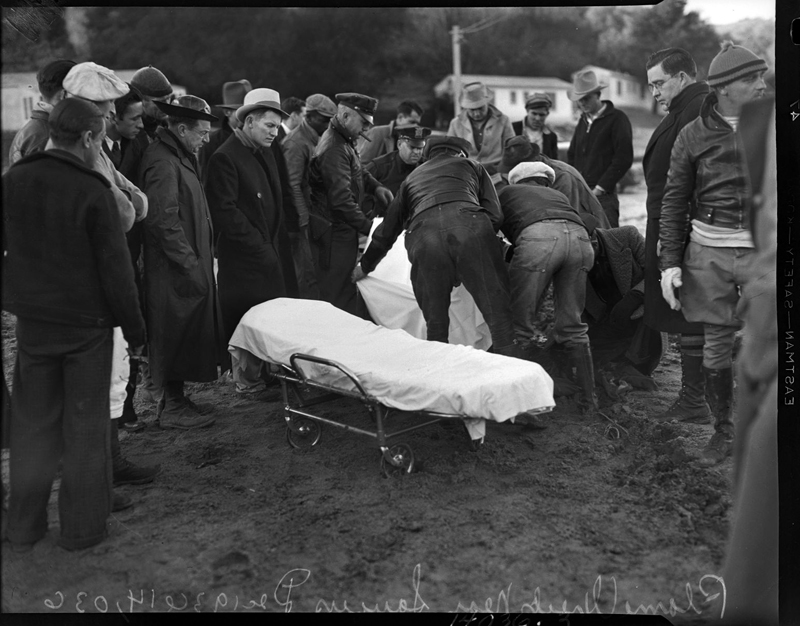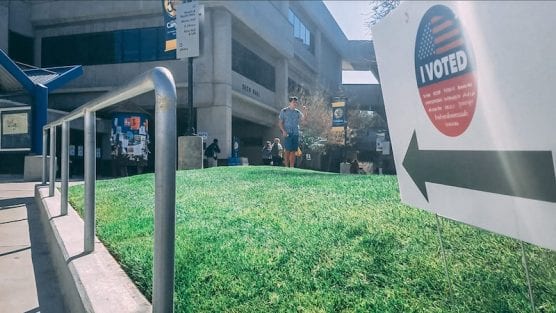The May 12 special election for California’s 25th Congressional District lacks a clear front-runner as voters in the swing district north of Los Angeles consider which party receives the praise, or blame, for recovery efforts during an economic downturn fueled by the COVID-19 pandemic.
The district — which encompasses parts of Los Angeles (including the Santa Clarita Valley) and Ventura counties — has a history of backing moderate Republicans, but most recently elected Democrat Katie Hill in the 2018 blue wave that secured the Democrats’ control of the House.
Hill resigned in November following an ethics probe of leaked photos of her relationship with a campaign aide, leaving the district without a representative in Congress for the past six months.
Democrat Christy Smith also flipped a seat that year from red to blue: California’s 38th Assembly District, which covers nearly 60% of the congressional district.
Smith is now her party’s top contender in the 25th District race after advancing from a crowded field of candidates in the March 3 special primary with 35.9% of the vote.
She will face off against Republican Mike Garcia, a political newcomer and former U.S. Navy pilot, who had 23.2% of the vote, according to county election results.
The candidate who secures the most votes on May 12 will serve in the House until January while the candidate who wins the November general election will serve the two year term beginning next year.
Smith positioned herself as the frontrunner early on in the race and has picked up steam after gaining endorsements from the state Democratic leaders, local unions and, most recently, former U.S. President Barack Obama.
“Now, more than ever, we need pragmatic, experienced and effective leaders in Washington,” Obama said in a statement.
Obama’s own meteoric rise in politics and his popular campaign for president has inspired Democrats in the 25th District race, Smith said in response to the endorsement.
Kunal Atit, a Smith campaign spokesperson, said the candidate was unavailable for an interview.
Smith said in a statement her record demonstrates her commitment to the public and her ability to guide the district through the health and economic crisis it faces.
“I am running this race making voters a very simple and straight forward promise, that if they elect me to serve them in Congress, I will work day in and day out to find solutions to the pressing problems we now all face like access to affordable healthcare, and real economic relief for families and local businesses, and I will never get caught up in the politics that so often paralyze our system,” Smith said.
Smith and Garcia have each raised more than $2 million for their campaigns and have about $320,000 on hand, according to Federal Election Commission data.
The Democratic Congressional Campaign Committee and the House Majority PAC have spent roughly $467,000 and $35,000, respectively, to oppose Garcia’s run, according to FEC data.
DCCC staffer Andy Orellana said the national party has poured funds into the race to ensure residents’ health care is a top priority for the district’s next leader.
“Mike Garcia has made his agenda clear: repeal health care protections, allow insurance companies to deny coverage for pre-existing conditions and hike up costs for life-saving drugs,” Orellana said.
Lance Trover, a Garcia campaign spokesperson, said the candidate was unavailable for an interview.
In a statement, Garcia said he was running to curb tax increases enacted by Smith and other California Democratic leaders.
“Frankly, [Smith] hasn’t met a tax she didn’t want to raise,” Garcia said. “Southern Californians simply cannot afford more taxes and we cannot take liberal Sacramento policies to Washington.”
Garcia slammed Smith for supporting Assembly Bill 5, a law designed to require gig-economy companies to offer employee status and benefits to their workers.
“AB5 was hurting our independent workers before the pandemic, and now it’s even worse,” Garcia said in the statement. “My biggest concern about how California is handling this outbreak is that they continue enacting nonsensical legislation that is not only hurting California businesses but also putting families in danger.”
Smith defended the bill in a recent debate, saying it closes a loophole that allows companies to not pay essential worker benefits, which in turn robs the state of vital finances.
Garcia said in the statement his work as an executive at defense-systems company Raytheon gives him expertise on jobs creation and management of big-budget projects.
“Our district is deeply supported by the aerospace industry, and I believe my experience in that sector along with my military credentials makes me uniquely qualified to tackle the national security issues this nation is facing,” Garcia said.
Due to the elevated risk of further spread of COVID-19 with the traditional voting process, all voters in the district have received a vote-by-mail ballot, following an executive order signed by California Governor Gavin Newsom.
L.A. County has placed 22 ballot drop-off boxes in the district and set up nine polling sites that will operate under strict public health guidelines, including a voting center at College of the Canyons’ Valencia campus.
Following new rules, voting is extended 10 days before May 12 and residents can register to vote in-person at polling sites, including on election day.
On Friday, Newsom announced California’s more than 20 million registered voters will receive a mail-in ballot for the November 3 election, a move that signals health officials’ assessment that recovery efforts won’t create public health conditions necessary for a traditional voting process.
Voters will still be able to submit their ballots in-person at polling sites that also handle same-day registration and address language and physical access needs.
“Elections and the right to vote are foundational to our democracy,” Newsom said in a statement Friday. “No Californian should be forced to risk their health in order to exercise their right to vote.”
In vote-by-mail elections, a common tactic for campaigns is to collect voters’ ballots – a process known as ballot harvesting – which was challenged in court recently by California’s Republican Party.
The lawsuit against Newsom and other officials claims allowing campaign workers and volunteers to go door-to-door to collect ballots conflicts with the statewide shelter-in-place order caused by the coronavirus pandemic.
Christian Grose, political science professor at the University of Southern California, said the move to vote-by-mail for the election has not made the race any less competitive.
But the COVID-19 outbreak has also made it difficult for campaign messaging to break through as the pandemic-fueled economic downturn has hit the district particularly hard, Grose said.
“When the economy is poor, voters often choose House candidates from the political party that is not in the White House,” he said. “On the other hand, the most recent incumbent was a Democrat who became engulfed in a scandal; and the bulk of California’s congressional delegation is Democratic. This could mean some voters might blame Democrats for the current crisis, and if so this could help the Republican candidate.”
Former Simi Valley City Councilwoman Barbra Williamson, who is backing Garcia, said the district voters she’s speaking to say they want someone with new ideas representing them in Congress.
“I think people are so tired of politics and want someone fresh, someone young in that seat,” Williamson said.
While Garcia has lashed out at Newsom’s response to the coronavirus outbreak in a recent forum, Williamson said the move to reopen some businesses and parks across the state Friday is a hopeful sign.
“I don’t like this governor, I wish we would have recalled him, but I think he’s trying to do what’s good for our community and our state,” Williamson said. “No one has been in this position before. [Newsom] is working at it. Is it working? I don’t know.”
Lena Smyth, who teaches political science at College of the Canyons and lives in the district, said the pandemic has pushed other issues such as immigration and climate change to the back of voters’ minds.
“Election day is a snapshot in time and captures how people feel that day,” Smyth said. “The things on voters’ minds a couple months ago have completely changed because of the pandemic.”
Smyth, wife of Santa Clarita Mayor Cameron Smyth, said partisanship in national politics has trickled into local races, including in the 25th District where Smith and Garcia have stuck closely to party lines on national issues such as health care and immigration.
But with the district’s demographic changes in recent years and shift from heavy red district to purple, the outcome may hinge on the region’s independent voters, many of whom are former Los Angeles residents.
“There are definitely a lot of independent voters who may not be as far right as conservatives in the mainstream Republican Party and there are also voters who aren’t as far left as some of the main players in the Democratic Party,” Smyth said, adding that the district’s large number of no-party-preference voters could also sway election results.
Smyth said the results of both the state and federal response to the COVID-19 pandemic, and which party claims credit, could impact voters’ decisions.
“It depends what recovery looks like and who claims credit for it,” she said. “It depends on polling at that snapshot in time.”
— By Martin Macias Jr., CNS
Like this:
Like Loading...
Related





 Tweet This
Tweet This Facebook
Facebook Digg This
Digg This Bookmark
Bookmark Stumble
Stumble RSS
RSS


























REAL NAMES ONLY: All posters must use their real individual or business name. This applies equally to Twitter account holders who use a nickname.
0 Comments
You can be the first one to leave a comment.